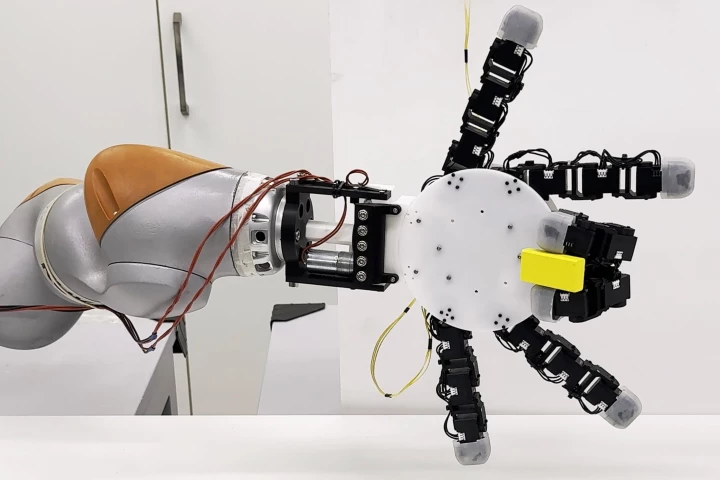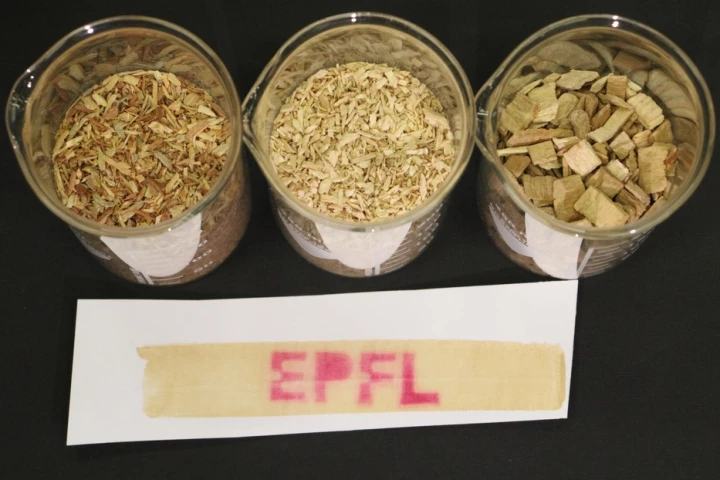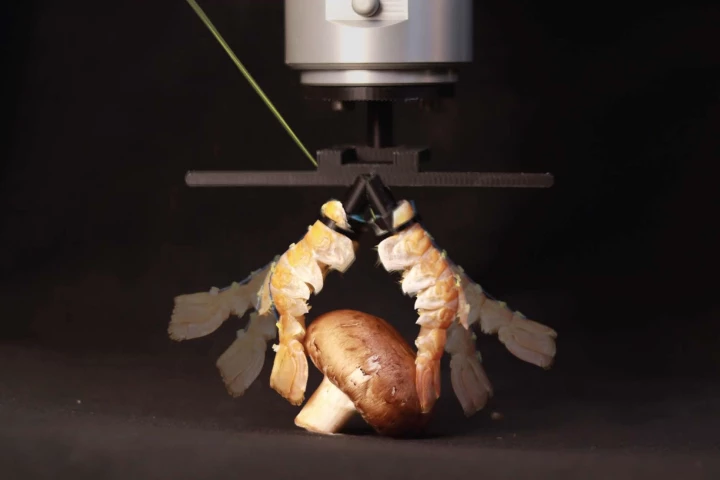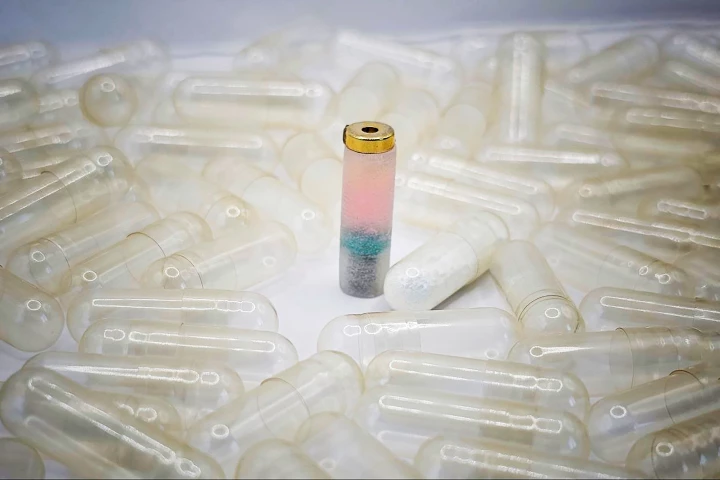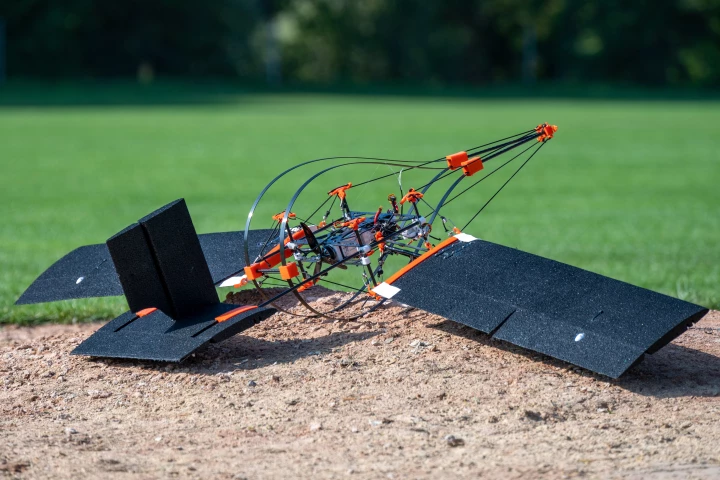EPFL
-
What has opposable thumbs and is the most dexterous tool on the planet? The human hand! Right? Well … not anymore. According to engineers at EPFL's school of engineering, a newly developed robotic hand may have just taken that title.
-
Nowadays, wood is rapidly becoming a valuable material in the renewable tech industry, replacing many harmful materials. Recent research shows that wood-derived compounds can serve as an alternative to the toxic chemicals used in paper receipts.
-
Researchers from Swiss university EPFL have removed the AI middle-man. There's reportedly no need to access Big Data centers, as their new downloadable Anyway Systems software can handle your AI processing needs locally.
-
Researchers at Switzerland’s EPFL have created a new neurotherapy that vastly and non-invasively improves vision for patients with hemianopia-related vision loss. Previously, patients suffering from the condition simply had to learn to live with it.
-
An experimental robotic gripper from Switzerland’s École Polytechnique Fédérale de Lausanne (EPFL) utilizes a pair of lobster tails as twin fingers. Because it uses actual animal tissue, this “hand” isn’t bio-mimicked. It’s bio-derived.
-
When an ulcer creates an actual perforation in the digestive tract, surgery is currently the only treatment. In the not-too-distant future, however, such holes may be easily plugged with the equivalent of a tiny remote-control swallowable pen.
-
For the first time, scientists have used innovative tech to demonstrated that a healthy microbiome needs a consistent flow of the right foods, finally proving that the "hunch" advice of 5 A Day is spot on, as far as your gut bugs are concerned.
-
Despite the fact that they bang their heads against trees on a daily basis, woodpeckers don't suffer brain injuries. Inspired by the tough-headed birds, scientists have developed a fixed-wing drone that can survive frontal collisions.
-
If you're releasing a robot into the aquatic environment with no intention of retrieving it, that bot had better be biodegradable. Swiss scientists have gone a step better, with a li'l robot that can be consumed by fish when its job is done.
-
Factory wood-cutting robots may be capable of fast and intricate carpentry tasks, but they're expensive – plus they put actual carpenters out of work. A new augmented reality system splits the difference, by guiding the hands of human carpenters.
-
A new study has tested innovative proof-of-concept technology that syncs electrical stimulation with rehabilitation robotics to enable individuals paralyzed after spinal injury to move more naturally. The tech should improve recovery outcomes.
-
If a robot is going to excel at traversing multiple types of terrain, it shouldn't have an unadaptable "Jack of all trades, master of none" body shape. That's where the GOAT comes in, as it automatically changes shape depending on the landscape.
Load More
